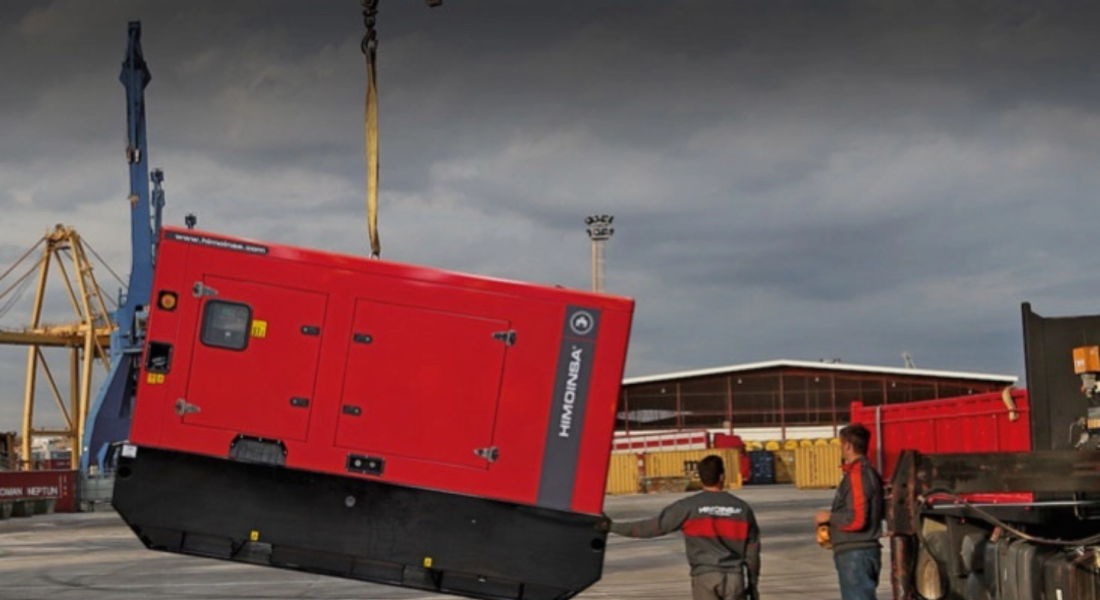
From healthcare and defence through to telecommunications, data centres and renewables, our generators can supply power to a whole host of key business equipment and machinery. Our generators prove fundamental to their operations – ensuring they are always connected and can still operate during a power outage.
Generators For Hospitals
If a hospital suffers a power outage for even just a few minutes, the cost to human life and the well-being of its patients can be detrimental. Hospitals and emergency units require generator sets that are faultless and error-free, not to mention an emergency supply that ensures continuous power in the event of a grid failure. A lot is riding on a hospital’s generator and its power supply, such as the surgical equipment they use, their ability to monitor patients and the automatic electronic medication dispensers. Should a power cut occur, generator sets have to provide every guarantee that they will be able to start up in a time that is so short that it barely affects whatever is happening in surgeries, bench testing, laboratories or on the hospital wards. When the strength of your healthcare generators and hospital generators could truly be the difference between life and death, it’s important you choose the right one.
Generators For Telecommunications
Not only is the telecoms industry solely dependent on electrical power and electricity supply, but the electrical power industry depends on telecommunications to manage their extensive network of generators and grid distribution. In fact, such is its important that the government has stated that telecommunications equipment must be, ‘’secured against loss of electricity both by having a battery backup (which might support service for about an hour) plus a diesel generator designed to cut in when the public mains supply fails.’’ From mobile communications, radio networks and television networks to broadband – including ethernet, internet and wireless networks – and public switched telephone networks (PSTN), there’s a lot that the public relies on. Therefore, ensuring long-distance continuity is a must – with the use of backup generators. With constant advancements in the telecoms market too – think voice, data and Cloud services – telecommunications require 24/7 power supply, as do all sectors.
Generators For Data Centres
Data centers are essential to delivering many daily services that society relies on, including communications, energy systems, transport and health services. When data loss is unacceptable, installing a backup generator can be the pre-emptive measure your business takes to ensure your clients and their customers can always access the information, the websites and the applications they need, whenever they need them.
Data centres function in either normal mode, where they operate from supplied utilities, or in emergency mode, where they operate from standby generators. In normal mode, as you may well know, utility power is routed through the automatic transfer switch and into the switchgear. The switchgear is configured for critical (components that need uninterrupted power, such as data centres or UPS) and non-critical (like HVAC or work stations) supplies.
Your data centre backup power supply has to account for components including battery banks, chargers and inverters, as well as the emergency generator itself. Should you lose power, and you have a backup data centre generator in place, then luckily, your emergency generator will start and automatic transfer switch transfers to emergency power. Your switch gear routes power to critical and non-critical loads and your UPS, data centre and security are powered by the backup generator.
Generators For Renewable Energy Sources
With predictions claiming that by 2030, renewables will supply 53% of Europe’s power, its sustainability and ability to provide power will be truly put to the test. Renewable technologies use natural resources – such as wind, wave, marine, hydro, biomass and solar – to make electricity, in varying ways. Wind farms use wind turbines to drive generators for electricity supply. Solar farms capture energy from the sun and convert that energy into electricity. Hydroelectric power stations involve dams to control the flow of water, which drives energy to produce electricity too. The process may be different, but this simple fact remains: with weather being unpredictable in the UK and beyond it, generators are a must for a constant power supply.
Regardless of your industry, and the UPS that you use, unfortunately, unexpected power outages and power failures may still happen, making backup generators and emergency generators fundamental to your operations. With benefits including instant and continuous power, ease of monitoring and business protection, your generator will give you peace of mind knowing that your critical systems and infrastructure are taken care of.
Whether you’re on the lookout for a healthcare generator, defence generator, telecommunications generator, renewable energy generator or data centre generator, here at Dale, we can provide them all. Guiding on everything from the engine, kVA and R.P.M. through to whether a single generator or 3 phase generator is right for you, our expert team will provide you with all of the answers. Therefore, if you’re located in Manchester, London, Cardiff, Glasgow or across the pond, and are looking for a new generator please contact us today on 0330 999 3000.